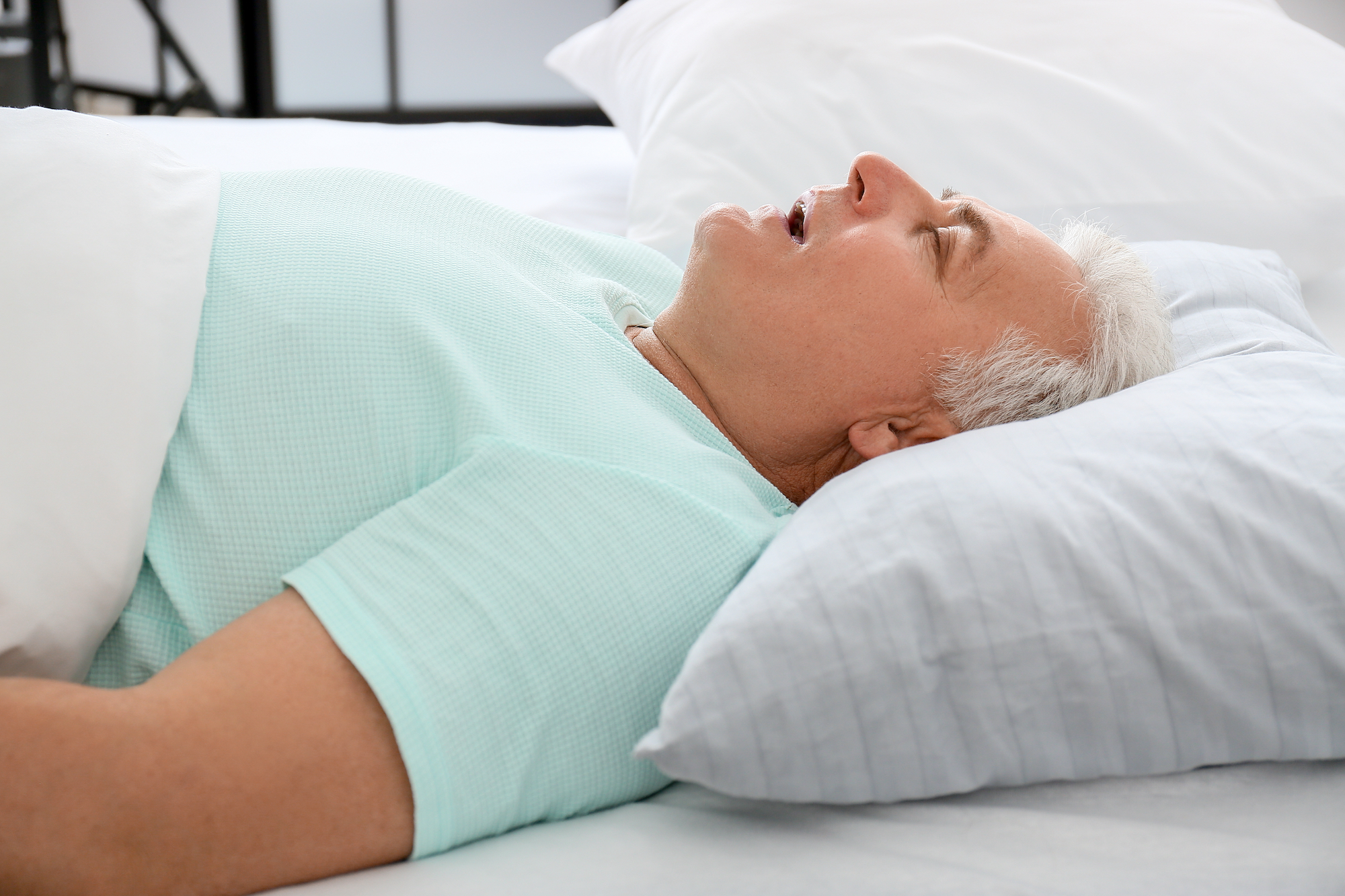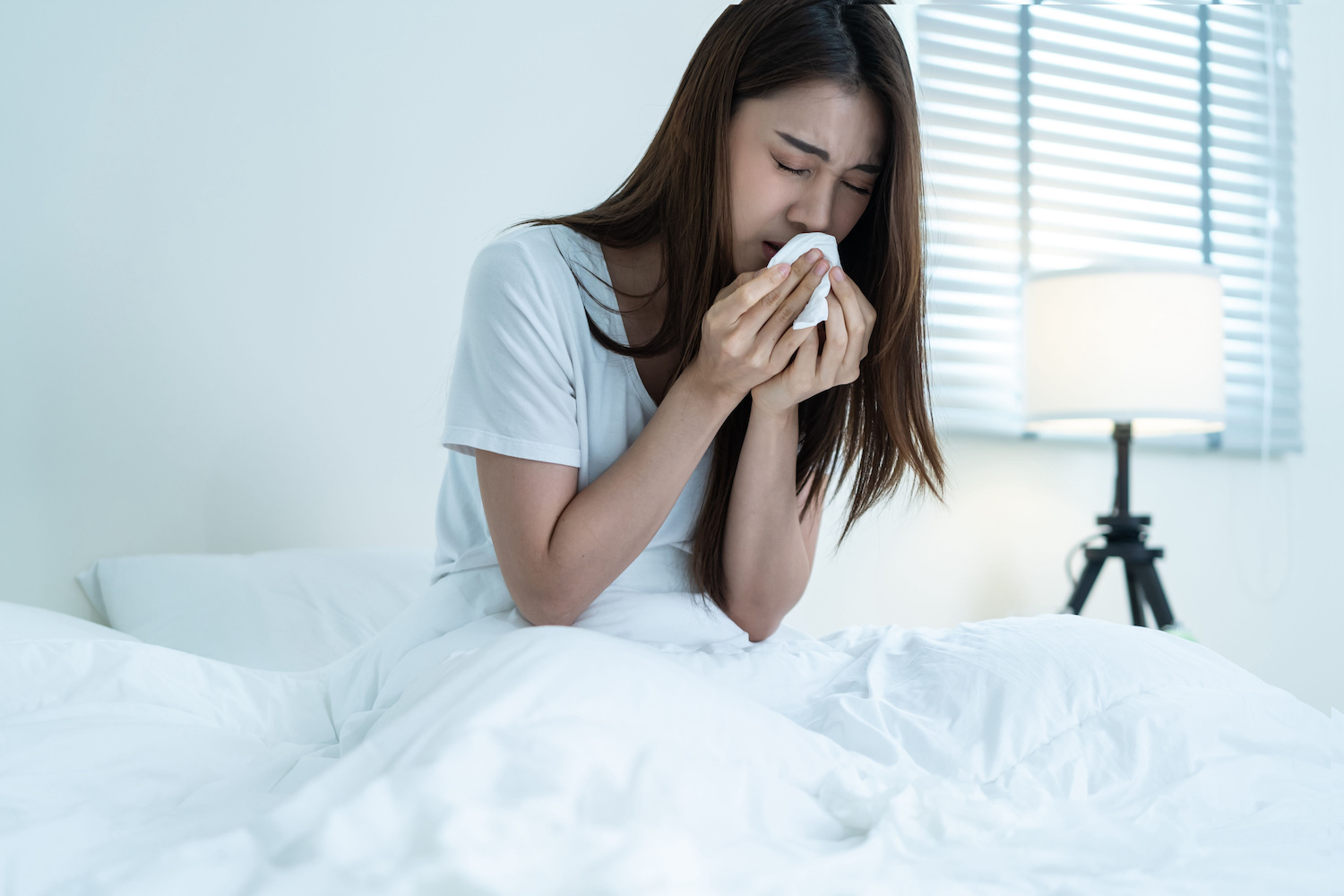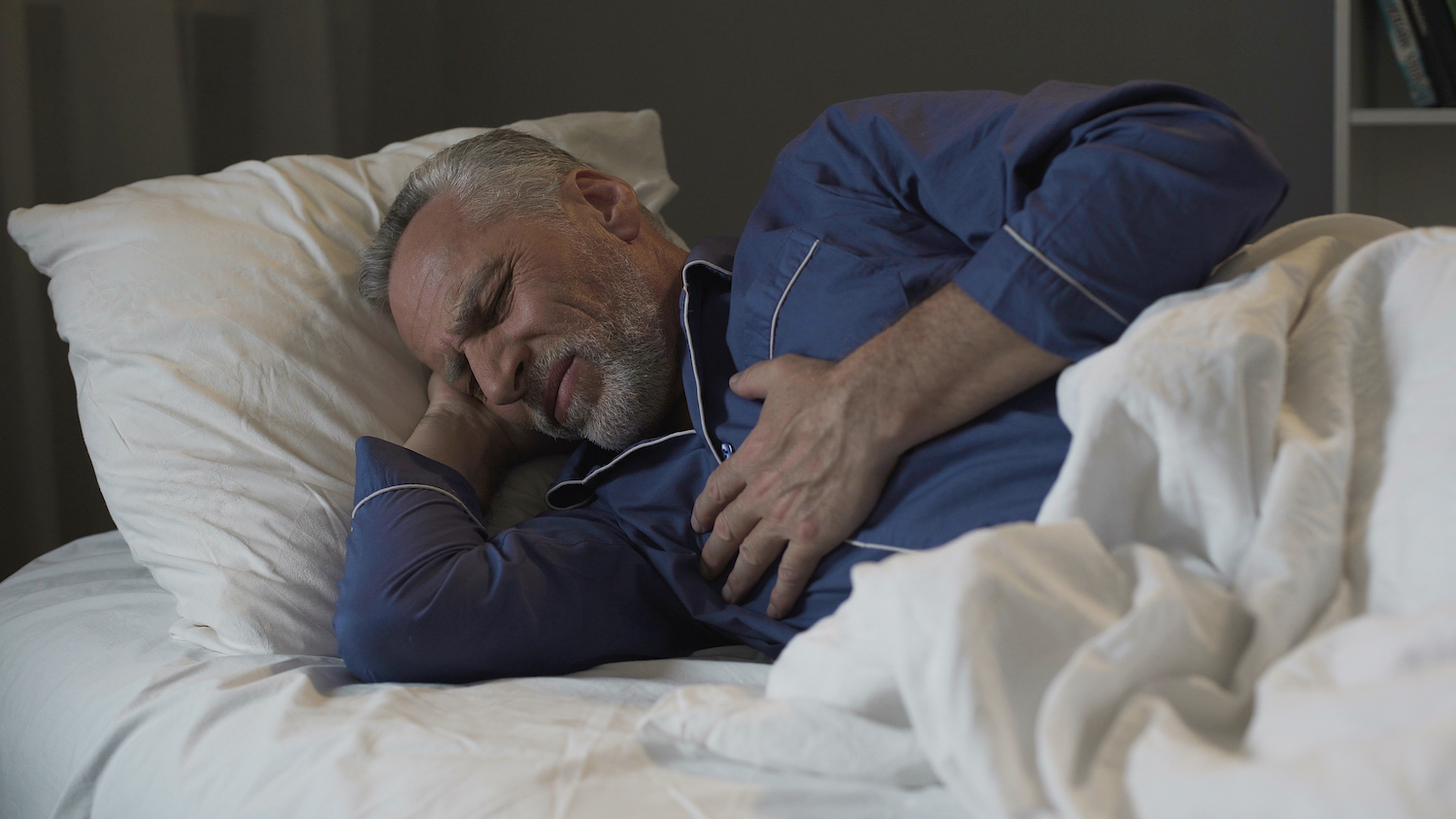Sleep apnea, a sleep-related breathing disorder, may cause a sleeper to wake up during the night gasping for air. This symptom may be difficult for some people to distinguish from paroxysmal nocturnal dyspnea, another medical symptom that can also involve waking up at night gasping for air.
Understanding the difference between gasping related to sleep apnea and gasping related to paroxysmal nocturnal dyspnea is important, because paroxysmal nocturnal dyspnea can indicate a serious heart problem. We explore what paroxysmal nocturnal dyspnea is, how it differs from sleep apnea, its causes, and potential treatments.
What Is PND (Paroxysmal Nocturnal Dyspnea)?
Paroxysmal nocturnal dyspnea, sometimes called PND, refers to a type of breathing difficulty that occurs while a person is lying down. Usually, PND happens all of a sudden and wakes a person up from sleeping. Paroxysmal means a sudden symptom, while nocturnal means at night, and dyspnea means trouble breathing.
Paroxysmal nocturnal dyspnea is a type of orthopnea, which refers to difficulty breathing while lying down. However, regular orthopnea involves a shortness of breath that occurs soon after a person lies down and can be relieved by sitting or standing back up. In contrast, paroxysmal nocturnal dyspnea feels intense and happens suddenly, often after a person has fallen asleep.
Symptoms of Paroxysmal Nocturnal Dyspnea
A person experiencing paroxysmal nocturnal dyspnea may wake up in the middle of the night all of a sudden while struggling with shortness of breath. People who experience these episodes may refer to them as “terrifying” because of their suddenness and intensity.
During a paroxysmal nocturnal dyspnea attack, a person may find themselves gasping for air. They may not be able to breathe regularly until they sit or stand up and catch their breath. As a result, people who experience this type of shortness of breath may find themselves wanting to sleep with their head and upper body propped up.
Paroxysmal Nocturnal Dyspnea vs. Sleep Apnea
Sleep apnea is a sleep-related breathing disorder that causes repeated periods of disrupted airflow during sleep, while paroxysmal nocturnal dyspnea is a symptom that involves sudden shortness of breath while lying down. Both issues can cause a person to wake up during the night, gasping for air.
In sleep apnea, a person gasps for air following a period of not breathing. When this lapse in breathing is caused by an airway obstruction, the disorder is called obstructive sleep apnea. When this lapse in breathing is caused by the brain failing to signal breathing muscles, it's called central sleep apnea.
Paroxysmal nocturnal dyspnea is a symptom, rather than a disorder itself. Often, it results from another underlying health problem.
Paroxysmal Nocturnal Dyspnea Causes
Paroxysmal nocturnal dyspnea can stem from different causes.
- Heart failure: A person who has heart failure, or is in the days or weeks before fully developing heart failure, may wake up at night with PND. Shortness of breath becomes more likely as a person with heart failure lies down, because more blood travels to the heart in this position.
- Chronic obstructive pulmonary disease (COPD): This lung disease can cause PND.
- Obesity: While obesity doesn't directly cause PND, it can worsen PND or the disorders that make PND more likely. Fat around the abdomen in particular can exacerbate PND, by adding pressure to the abdominal area.
- Pregnancy: Some people experience shortness of breath, including PND, during pregnancy. This may be from the pregnancy alone, or the result of a heart issue that developed during pregnancy. If the shortness of breath stems from a heart issue, it may continue after childbirth.
- Central sleep apnea: Although sleep apnea doesn't usually cause PND, it can in certain cases. People with a type of central sleep apnea that involves a breathing pattern called Cheyne-Stokes breathing may experience PND after a lapse in breathing during sleep. This usually occurs in people who have both central sleep apnea and heart failure.
- Drug and alcohol misuse: Using the recreational drug cocaine can lead to heart issues and related symptoms, including PND. Similarly, consuming unhealthy amounts of alcohol can cause heart issues that present as PND.
- Heart tumors: Tumors in the heart can block blood flow and, as a result, cause PND.
- Heart transplant rejection: If the body of a person who received a heart transplant begins to reject the new heart, PND may be a symptom.
How Paroxysmal Nocturnal Dyspnea Is Diagnosed
A doctor diagnosing paroxysmal nocturnal dyspnea may conduct a physical exam and ask questions about the person's health history. For example, they may ask questions about when symptoms began, how severe they are, and factors that may contribute to shortness of breath. They may also order tests of the lungs or heart to look for underlying issues.
In an emergency situation in which a person is still experiencing shortness of breath, a doctor may give a person oxygen as they identify if there's a life-threatening condition occurring.
Treating Paroxysmal Nocturnal Dyspnea
The treatment of paroxysmal nocturnal dyspnea depends on its underlying cause. Anyone waking up at night with sudden shortness of breath should see their doctor, as they can identify the cause and find the optimal treatment.






